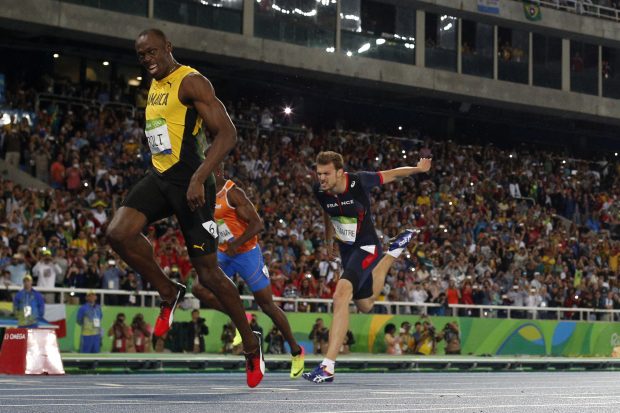Does the Olympics medal table reflect more than just sporting prowess? If you take a look at which countries have won the most golds since the first modern games in 1896, it certainly looks that way. Without exception, the winning nations are either those running the planet – or the ones who were about to try.
In fact, just six countries have occupied the top slot at the 27 Games so far over the past 120 years. Five of these are also permanent members of the United Nations Security Council; whilst the sixth, Germany, (who won in 1936) would also be on the Security Council, but for the inconvenient fact of the Second World War.
The biggest winner of all has been the USA, who topped the list 16 times: proof – not that we needed it – that the twentieth century really did belong to America. Uncle Sam is followed by Russia, which has pipped all comers to the post seven times. Britain, France and China have one victory apiece. Again, this fits with the realpolitiks of the past hundred years.
Compare that to football and suddenly the beautiful game seems like a startling example of international democratic equality. There have been eight winners of the 20 World Cups in football held since 1930, of which only one, England, is a member of the UN’s permanent five. The other winners include little Uruguay, which has a population about twice that of Sussex.
So once the athletes have promenaded and the torch lit, there’s clearly much more on show at the Olympics than just sport. And surely we all knew that?Since these athletes have to be paid not to do more productive work, it means that, in the end, it all boils down to filthy lucre – on a national scale.
The question is, then, what’s the point of competing in the Games – or watching them – if Googling each country’s GDP figures could probably tell you the result beforehand? Take the first week of the Rio Olympics, for instance, when the US, followed by China, and then Japan topped the medal table – the precise descending order of the world’s three largest economies. Instead, why don’t we just get the world’s finance ministers and central bankers to conduct an egg-and-spoon race?
Well, part of the intoxicating Olympics appeal are the great upsets and the outliers who emerge during the actual competition. It’s seeing the little countries occasionally beat the big boys, when we all know that they’re not meant to. We love the fact that Jamaica dominates the sprinting, or that Australia creates such a splash in the pool. We enjoyed seeing the Kosovans get their first ever medal this time round. Good on them. They’re defying geopolitical gravity.
And here it’s worth referencing our very own Team GB, which is clearly outperforming the index (as your financial advisor might say). At the time of writing, Britain, with the fifth largest economy in the world, is in a fairly astonishing second place. That puts the UK ahead of China, with its vast resources of population and cash, as well as Japan and Germany – both better supplied in treasure and manpower. Go Team GB!
That’s why all the fuss is worth it, because at many levels there’s something to enjoy and relish in the Olympics. Whether it’s that David and Goliath battle – seeing someone whose sheer brilliance can overturn the fundamental economic inequality of the whole thing; someone so utterly peerless that they can hurdle a trillion dollar difference in GDP between the competitors. Or whether it’s the vicarious pleasure – as we saw through the 11 antagonistic Games of the Cold War – of watching two superpowers with deep enmities fighting it out in the absurd (but brilliant) parallel universe of synchronised diving.
So we mustn’t decry the Olympics for being fundamentally fixed in favour of the big and the wealthy. We mustn’t reform it, and do something crazy like try to make it fair by offering positive discrimination to athletes from poor countries. That would spoil what makes the Olympics so magical.






Comments